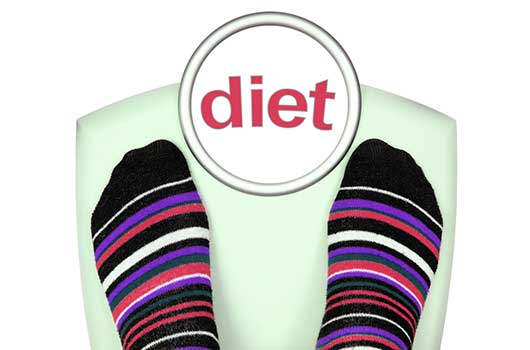
Guess what? The U.S. is not #1 anymore. Mexico, according to the U.N. Food and Agricultural Organization, has surpassed the United States as the fattest nation in the world. An estimated 70 percent of the Mexican population is overweight, and about one-third of Mexicans are obese. Just one fat-related disease, diabetes, accounts for nearly 70,000 Mexican deaths per year.
“But this doesn’t mean our health to the north has gotten better—it just means others have gotten worse, and the dubious distinction of who is the world’s most obese nation is debatable,” says Dr. James L. Hardeman, who has seen firsthand the consequences of unhealthy habits during his 30 years as a practicing physician. “For one, we’ve been fatter longer than Mexico has and yet we still haven’t sufficiently dealt with our national epidemic of fat-based disease. Our overweight and obese percentages are neck and neck with Mexico’s, and some of this is due to misinformation.”
Read Related: 5 Fitness Myths Busted!
Dr. Hardeman, author of “Appears Younger than Stated Age,” a pragmatic guide to looking younger, debunks some of the myths that are hindering dieters’ efforts to slim down:
-
Myth: Thirty minutes of exercise three times a week is sufficient. Moderate exercise may work for the 25-year-old with a reasonably healthy diet. When we are young, our basal metabolic rate (BMR) rages like a furnace. Unfortunately, our BMR decreases 2 to 3 percent each decade after age 25. That means we have to make up for that decrease with either better eating habits, more exercise, or both—if we want to maintain a healthy weight. For those who are older, overweight or obese, a stronger commitment is necessary, including an hour’s worth of exercise at least five times a week.
-
Myth: Gaining weight with age is healthy because it’s natural. Metabolism slows with age, causing many to put on the pounds. However, maintaining your Ideal Body Weight (IBW), which factors in height, gender and frame size, will keep you feeling and looking younger. Also, casually accepting some weight gain over time can lead to massive weight gain considering our largely sedentary lifestyles and easy availability of quick, fatty meals.
-
Myth: You should drink at least eight glasses of water per day. Humans possess a sensitive thirst center in a part of the brain called the hypothalamus, which responds to dehydration and tells us to drink water. The amount of water needed for each person varies; so we don’t need to target a set amount because our thirst will tell us. However, drinking plenty of water may decrease appetite, and water should always be chosen over sugary beverages for satiating thirst.
-
Myth: Diet books keep you slim. “Going on a diet” is one of America’s favorite pastimes. Diets typically entail temporarily altering eating patterns, losing a bit of weight, and then going back to old habits. This has created an entire genre of literature, as well as videos, gear and meal plans that have become a multibillion-dollar industry. Really, it all boils down to the I&O (Intake and Output) principle. Eat less, exercise more.
-
Myth: Taking vitamin supplements every day makes you healthy. Dietary supplement sales represent a $20 billion a year business, yet the 1994 Dietary Supplement Health and Education Act allows for significantly more lenient rules for supplements than medications from pharmaceutical companies, which are carefully scrutinized by the FDA. Manufacturers are not required to substantiate the supposed benefits of their products. A balanced diet generally provides all required vitamins and minerals needed, with the possible exceptions vitamin B12 for those who eat no animal products, folic acid for women of childbearing age, and, if blood tests indicate deficiency, vitamin B12 and vitamin D in the elderly.











